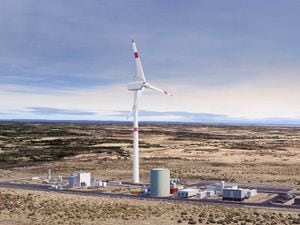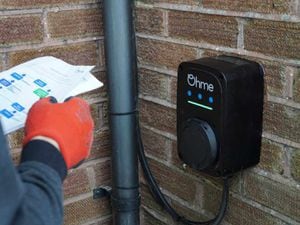What are e-fuels and how could they change motoring?
We take a closer look at one of the latest ‘green’ options for motorists.

Germany has announced that it has reached a deal with the European Union that will allow combustion-engined cars to be sold beyond 2035 – as long as they’re using e-fuels.
It’s a significant milestone for the alternative fuel, which is already being seen by many industry leaders as a genuine green alternative to help power vehicles in the future. But what are e-fuels and what could they mean for you? We’ve gone through some of the key points you need to bear in mind.
So what are e-fuels?
E-fuels are either gas or liquid-form substances that are created from renewable sources. Though their creation via ‘green’ power forms – such as solar or wind – they’re considerably better for the environment than traditional fuels such as petrol or diesel.
Through their cleaner production process, lifetime emissions for e-fuels are considerably down on those for ‘usual’ fuels, too.
How do you make e-fuels?

>
You’ve got different types of e-fuels which bring different manufacturing processes. You can get e-kerosene, e-methane and e-methanol, but they all largely work by converting captured CO2 emissions and hydrogen into either liquid or gas. This is done using CO2-free electricity, ensuring that the whole process is as clean as possible.
Plus, e-fuels can still use the same transportation methods as existing gas and petroleum – so there’s no need to put extra logistics plans in place.
Do cars running on e-fuels still emit CO2, then?

>
Yes. If you fill up a car with an e-fuel, it’ll still produce CO2 from the exhaust, just as a ‘normal’ car would. However, the difference lies in that initial production method, as the idea behind the whole process is that the CO2 captured to create the fuel in the first place completely offsets those produced by the vehicle. It turns it into more of a ‘cycle’.
In theory, e-fuels could be used in any car, too, which would mean that people could run their existing vehicles with this new fuel.
Who actually makes e-fuels at the moment?
The technology is very much in its infancy, which is why not many groups actually produce it. One of the biggest advocates of e-fuels has been Porsche, which has recently opened its own e-fuel production site in Chile. It picked its spot in Punta Arenas due to its naturally windy conditions which can help generate enough energy to power the plant.
Porsche plans to use its e-fuels in its race cars initially, though does intend to use them further down the line in other applications.
BMW has also invested in e-fuels via its Prometheus Fuels start-up, and Mazda has pledged its support for e-fuels too. In fact, an eFuel Alliance has already been set up with some big key players putting their names down, including Siemens, Bosch and Iveco, among others.
Will e-fuels become more mainstream in the future?
This latest announcement by Germany is a big one for e-fuels. For many, they’re seen as yet another alternative option that could be used in the future alongside electric vehicles.
However, some commenters have stated that e-fuels would be better put to work in areas where there aren’t any alternatives – such as in the aviation industry – in contrast to motoring where electric vehicles provide a viable option instead.





